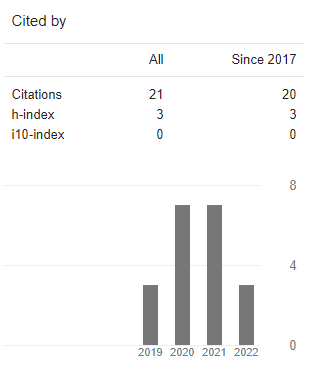Rhetorical Devices of Pronoun on Donald Trump’s Presidential Speech “Remarks by President Trump to March for Life Participants and Pro-Life Leadersâ€
DOI:
https://doi.org/10.21776/ub.alphabet.2019.02.02.04Keywords:
pronouns, speech, intended meaningAbstract
Pronouns are used by the politicians in order to make significant effect in their speeches. This study is designed to describe the rhetorical devices of pronoun used by Donald Trump in his presidential speech to March For Life participants and pro-life leaders and to explain how the use of pronoun reflects the intended meaning. The research design of this study is document analysis resting on the principle of phenomenology. The finding shows that pronouns I, My, You, We, Our, and Us are used (1) to create the sense of closeness, informality, no social distance relationship, and togetherness, (2) to claim and demand for shared responsibility, and (3) to show his personal quality in addressing the event. The essence of intended meaning is that to gain trust and to persuade people to accept his vision and ideas.References
Alavidze, Maia. (2017). The Use of Pronoun in Political Discourse. International Journal of Arts and Sciences, 09(04), 349-356
Aswad, N. G. (2019). Exploring Charismatic Leadership: A Comparative Analysis of the Rhetoric of Hillary Clinton and Donald Trump in the 2016 Presidential Election. Presidential Studies Quarterly, 49(1), 56-74
Beard, Adrian. (2000). The Language of Politics. New York: Routledge.
Benen, Steve. (2016, March 30). Trump Backs Abortion Ban, Calls for Punishment’ for Women. MSNBC. Retrieved from http://www.msnbc.com/rachel-maddow-show/trump-backs-abortion-ban-calls-punishment-women
Bojorquez, Manuel. (2016, November 10). Trump’s Election Puts Mexico in Edge, Ready to Respond to Campaign Threats. CBS. Retrieved from https://www.cbsnews.com/news/donald-trump-election-puts-mexico-on-edge-ready-to-respond-to-campaign-threats/
Corckett, Zachary. (2017, January 23). Donald Trump is the only president with no political or military experience. Vox. Retrieved from https://www.vox.com/policy-and-politics/2016/11/11/13587532/donald-trump-no-experience/
Crystal, David. (2008). A Dictionary of Linguistics and Phonetics. Australia: Blackwell
Gestel, Alex V. (2017, January 20). The Psychological Language Tricks Donlad Trump Used to Convince Americans to Vote Him in as President. Independent. Retrieved from ttps://www.independent.co.uk/voices/donald-trump-inauguration-psychological-tricks-language-twitter-tweets-convince-americans
Griffin, Em. (2012). Communication: A First Look at Communication Theory. New York: McGraw Hill
Jones, Jason, & Peccei, J.S. (2004). Language, Society, and Power: An Introduction (2nd edition). London: Routledge
Lister, Richard. (2015, December 8). Outcry as Donald Trump Calls for US Muslim Ban. BBC. Retrieved from https://www.bbc.com/news/av/world-us-canada-35036567/outcry-as-donald-trump-calls-for-us-muslim-ban
Milles, M. B., & Huberman, A. M. (1994). Qualitative Data Analysis: An Expanded Sourcebook (2nd edition). United States: Sage Publications, Inc.
Moustakas, C. E. (1994). Phenomenological Research Methods. United States: Sage Publication
Savoy, Jacques. (2018). Analysis of The Style and The Rhetoric of The 2016 US Presidential Primaries. Oxford University Press, 33(1), 143-159
Sedensky, Matt. (2017, April 26). Trump’s Speaking Style Still Flummoxes Linguists. Boston.com. Retrieved from https://www.boston.com/news/politics/2017/04/26/trumps-speaking-style-still-flummoxes-linguists
Shugerman, Emily. (2018, January 9). Trump Speaks at level 8 year old, new analysis finds. Independent. Retrieved from https://www.independent.co.uk/news/world/americas/us-politics/trump-language-level-speaking-skills-age-eight-year-old-vocabulary-analysis-a8149926




















